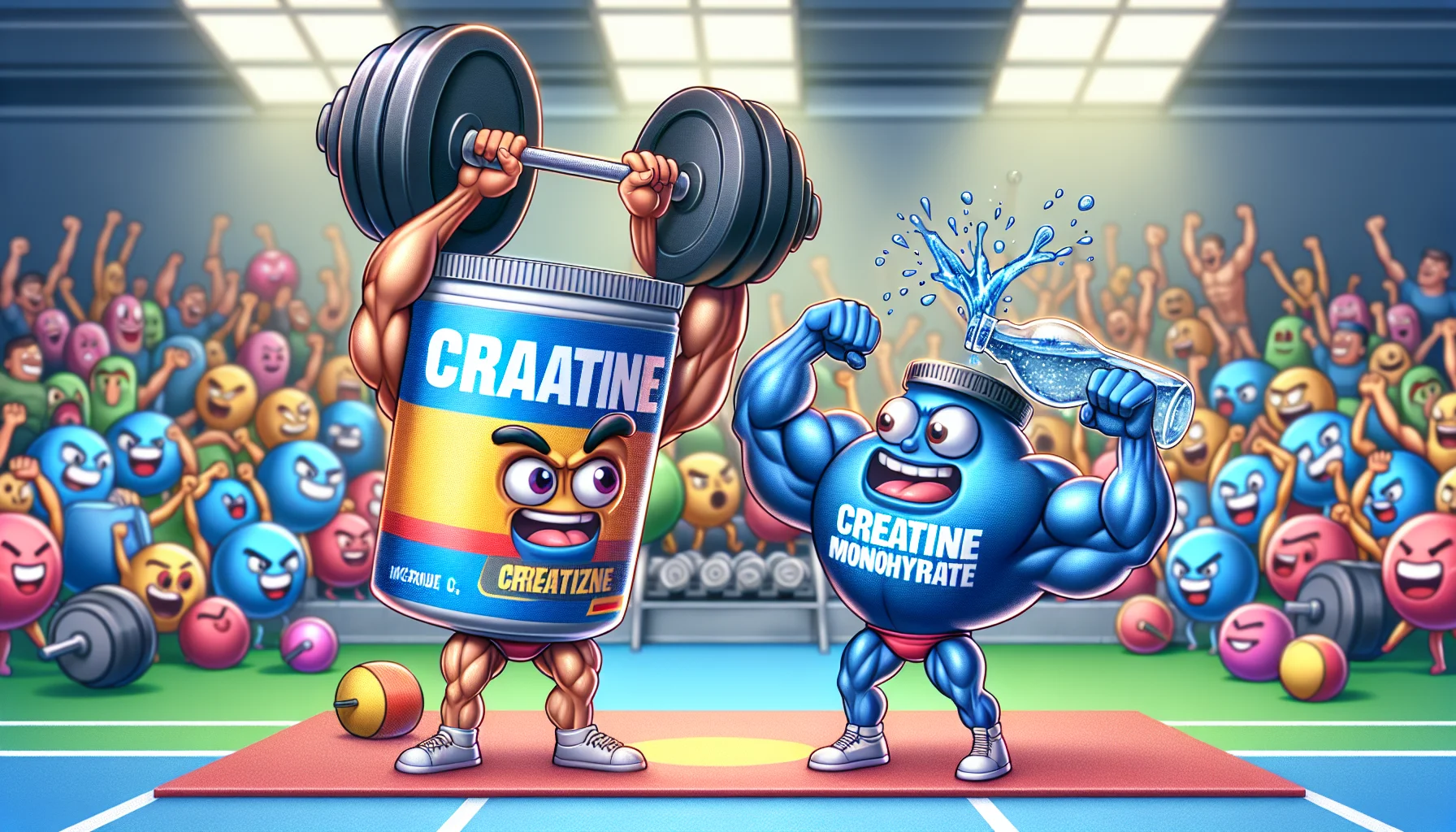Micronized creatine vs creatine monohydrate Quiz
Test Your Knowledge
Question of
Micronized Creatine vs Creatine Monohydrate: An Overview
Creatine plays a pivotal role in sports, particularly in boosting athletic performance and increasing muscle mass. It is a key supplement that supports energy production during high-intensity, short-duration exercises. This article delves into a comparison between two popular forms of creatine supplements: micronized creatine and creatine monohydrate. Each form has its unique attributes and benefits, making the choice between them an important consideration for athletes and fitness enthusiasts aiming to optimize their workout results.
What is Creatine Monohydrate?
Creatine Monohydrate is a popular dietary supplement used among athletes and bodybuilders to improve performance and increase muscle mass. It is a naturally occurring compound found in small amounts in certain foods, and it can also be synthesized in the laboratory. Creatine monohydrate works by replenishing the body's stores of ATP (adenosine triphosphate), which is used for short bursts of energy during high-intensity activities. This can lead to improved strength, increased muscle endurance, and faster recovery times. Commonly used in sports that require quick and explosive movements, such as weightlifting, sprinting, and football, creatine monohydrate has been extensively studied and is considered safe for most people when used as directed.
Understanding Micronized Creatine
Micronized creatine is a form of creatine monohydrate that has been processed to reduce the size of its particles. This process increases the surface area of the creatine, making it more easily absorbed by the body and more soluble in water. The primary benefit of micronized creatine is its enhanced solubility, which leads to fewer issues with stomach discomfort and a quicker uptake into the muscle cells, compared to regular creatine monohydrate. Additionally, the finer powder is more convenient to mix with liquids, resulting in fewer gritty residues. Despite these differences in form and solubility, micronized creatine offers the same proven benefits as regular creatine monohydrate, including improved strength, increased muscle mass, and faster recovery times during high-intensity activities.
Comparative Analysis
| Aspect | Micronized Creatine | Creatine Monohydrate |
|---|---|---|
| Absorption Rate | Faster due to smaller particle size | Standard absorption rate |
| Solubility | Higher solubility in water | Less soluble in water compared to micronized creatine |
| Effectiveness | Highly effective, similar to creatine monohydrate | Highly effective, benchmark for comparison |
| Cost | Generally more expensive | More cost-effective |
Pros and Cons of Micronized Creatine
Pros
- Enhanced solubility in water, making it easier to mix and consume.
- May reduce the potential for stomach discomfort compared to non-micronized forms.
- Improved absorption by the body, potentially leading to better muscle energy production.
- Can lead to increased muscle mass and strength when combined with resistance training.
- May improve exercise performance, including better endurance and recovery times.
Cons
- Typically more expensive than standard creatine monohydrate.
- Some individuals may not notice a significant difference in effects compared to non-micronized creatine.
- May still cause digestive issues, such as bloating or cramping, in sensitive individuals.
- The increased absorption rate is beneficial but may not justify the higher cost for all users.
- Potential for overreliance, neglecting other important aspects of nutrition and exercise.
Pros and Cons of Creatine Monohydrate
Advantages
- Increases muscle strength and power
- Enhances performance in high-intensity activities
- Accelerates muscle growth
- May improve brain function
- Supports recovery after exercise
- Has a well-established safety profile
Disadvantages
- Can cause weight gain due to water retention in muscles
- May lead to digestive issues in some individuals
- Potential for kidney damage with long-term excessive use
- Needs to be taken consistently for best results
- Effectiveness can vary from person to person
Conclusion: Which One Should You Choose?
In comparing micronized creatine and creatine monohydrate, it's evident that both supplements offer significant benefits in enhancing athletic performance, increasing strength, and aiding in muscle recovery. Micronized creatine, with its finer particles, promises better solubility and potentially faster absorption, which might be preferable for those who experience digestive issues with regular creatine monohydrate. On the other hand, creatine monohydrate has been extensively researched and proven effective over time, making it a reliable choice for athletes and individuals looking to improve their physical performance. Ultimately, the decision between micronized creatine and creatine monohydrate should be based on personal preferences, tolerability, and specific fitness goals. Consulting with a healthcare professional can also provide tailored advice to help make the best choice for your individual needs and preferences in sports.












